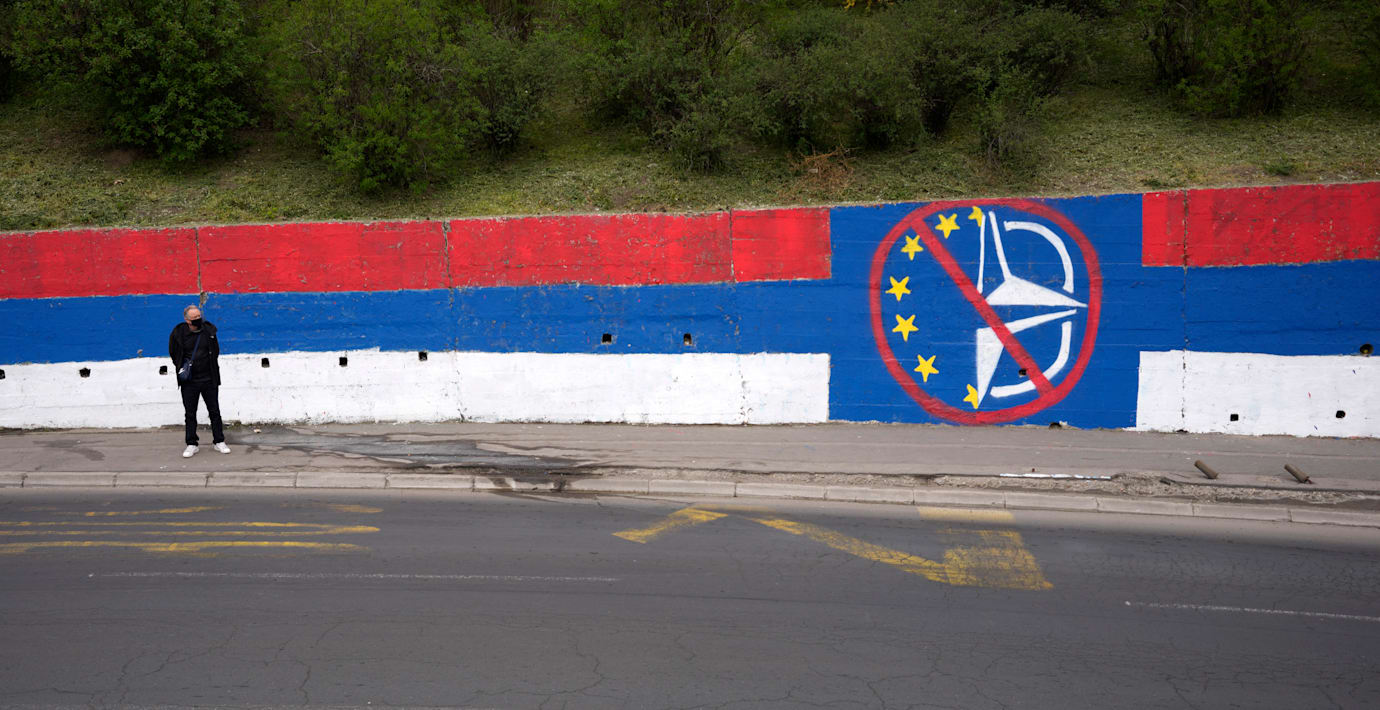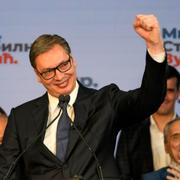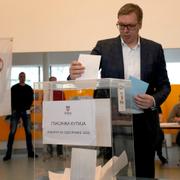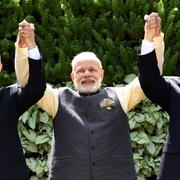
”Många serber har hjärtat i Ryssland men hjärnan i EU”
Många serbiska väljare är splittrade inför framtiden och känner att hjärtat tillhör Ryssland medan hjärnan Europa. Det säger den säkerhetspolitiske experten Stefan Vladisaljev till SVT Nyheter inför söndagens val.
– Känslorna bland serberna är motstridiga. De finns de som jämför den ryska invasionen av Ukraina med Natos intervention i Jugoslavien 1999, säger han.
Den sittande president Aleksandar Vucic har tidigare lyckats med utmaningen att balansera mellan viljan att gå med i EU och upprätthålla goda relationer med Ryssland. Efter invasionen ökar kraven på honom att välja sida, något som Vladisaljev tror kommer att bli nödvändigt.
bakgrund
Rysk-serbiska relationer
Wikipedia (en)
Russia–Serbia relations (Russian: Российско-сербские отношения, Serbian: Руско-српски односи, romanized: Rusko-srpski odnosi) refer to bilateral foreign relations between Russia and Serbia.
The countries established official diplomatic relations as Russian Empire and Principality of Serbia in 1816. Russia has an honorary consulate in Belgrade, an embassy in Belgrade, and a liaison office to UNMIK in Pristina as Serbian province of Kosovo and Metohija. Serbia has an embassy in Moscow, an honorary consulate in St. Petersburg, and has announced to open a consulate-general in Yekaterinburg.
While geographically not close, Serbia and Russia are both Slavic and Eastern Orthodox Christian countries and thus share distant and notable cultural heritage. Both countries were full members of the Council of Europe (until Russia's expulsion in 2022) and the Organization for Security and Co-operation in Europe.
After the dissolution of the USSR, the Socialist Federal Republic of Yugoslavia recognized Russia in December 1991 by the Decision of the Presidency on the recognition of the former republics of the USSR.
Diplomatic relations between the Kingdom of Yugoslavia and the USSR were established on 24 June 1940, and Serbia and the Russian Federation recognize the continuity of all inter-State documents signed between the two countries. There are about 70 bilateral treaties, agreements and protocols signed in the past. Serbia and the Russian Federation have signed and ratified 43 bilateral agreements and treaties in diverse areas of mutual cooperation so far.
According to censuses, there were 3,247 ethnic Russians living in Serbia (2011) and 3,510 Serbs with Russian citizenship (2010).
Russia and Serbia are both predominantly Slavic and Eastern Orthodox countries, which share a strong mutual cultural affinity. The countries have been close allies for centuries; and the friendship between them has been strongly maintained despite Serbia's recent attempt to maintain closer relations with the West.
bakgrund
Serbiska valet 2022
Wikipedia (en)
General elections will be held in Serbia on 3 April 2022 to elect both the president and members of the National Assembly. Initially, parliamentary elections were scheduled to be held in 2024; however, in October 2020 president Aleksandar Vučić stated that snap parliamentary elections would be held in or before April 2022. In addition to the general elections, local elections will be held simultaneously in 12 municipalities and 2 cities, including Belgrade.
The Serbian Progressive Party (SNS) came to power in 2012 after forming a government with the Socialist Party of Serbia (SPS). They managed to win a supermajority of seats following the 2020 parliamentary election, which was boycotted by majority of parties, which stated that the conditions weren't free and fair. Vučić, who was elected president in 2017, faced mass protests during his first term, most notably during 2018–2020 and in July 2020. Vučić also oversaw the inter-party dialogues regarding electoral conditions which took place in 2021, while the agreement regarding the conditions between government and opposition parties was reached in October 2021. Over the course of 2021 and early 2022, environmental protests were also held, with its climax being reached in November and December 2021. The government also held a referendum regarding the implementation of changes to the constitution in January 2022 which was approved by 60% of the voters, although the turnout was reported to only be at 30%.
Opposition parties have also solidified their presence in the elections, such as the United for the Victory of Serbia coalition that received the greatest support amongst opposition parties in opinion polls. The Republic Electoral Commission (RIK) has confirmed that 19 parliamentary lists and eight presidential candidates will participate in the general elections.
Omni är politiskt obundna och oberoende. Vi strävar efter att ge fler perspektiv på nyheterna. Har du frågor eller synpunkter kring vår rapportering? Kontakta redaktionen


